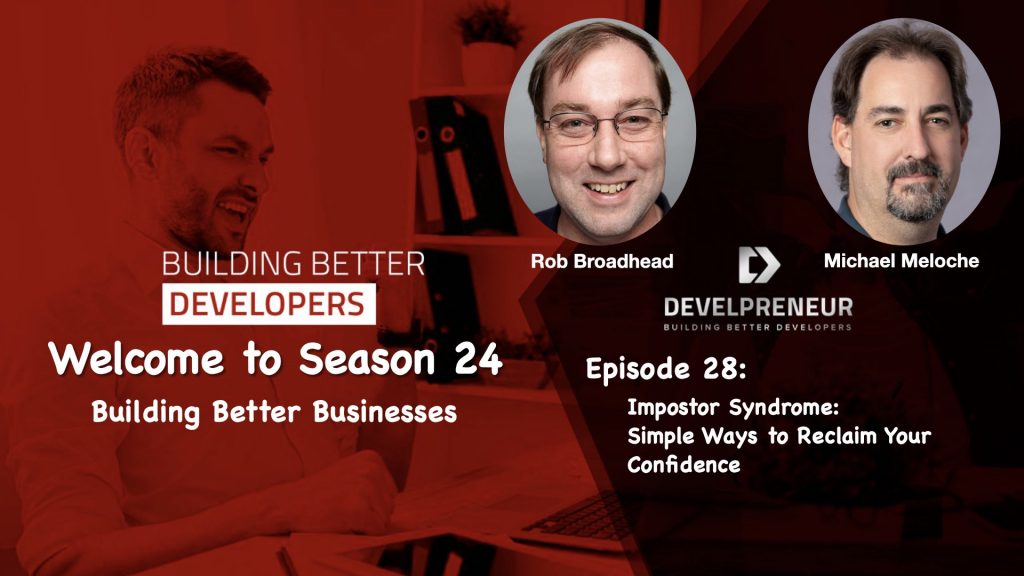In this episode of Building Better Developers, Rob Broadhead and Michael Meloche explore impostor syndrome—a challenge many entrepreneurs and leaders silently struggle with. You’re not alone if you’ve ever felt unworthy of success or like you don’t belong.
Why Impostor Syndrome Appears After Success
Impostor syndrome tends to show up at the most inconvenient times, usually after a win. You’ve landed a big client or completed a major project, but instead of confidence, you feel doubt.
Michael identifies three primary triggers:
- Burnout – You’re stretched too thin and start to question your ability.
- Lack of direction – Uncertainty about what’s next fuels anxiety.
- Criticism – Negative feedback sticks harder than positive progress.
💡 “You may not feel different, but your momentum is finally paying off.” – Rob Broadhead
The Risk of Ignoring Impostor Syndrome in Business
Rob explains that impostor syndrome can derail progress. It causes you to second-guess your success and stalls the rhythm that helped you grow.
Michael shares a personal story: after rising to a leadership role in healthcare, he left, not because of performance, but because the toxic environment fed his self-doubt. Sometimes, impostor syndrome is triggered by external circumstances, not internal flaws.
Reframing Impostor Feelings Into Growth
Rob reminds us that comparison is dangerous. Your story is unique, and judging your path against others only fuels impostor syndrome.
He encourages a mindset shift:
- Your success is valid, even if it came suddenly.
- Momentum often builds quietly, then breaks through.
- You’re not an impostor—you’ve grown into your potential.
🎯 “You’re not an impostor. You’re someone who showed up every day and kept going.”
Your Weekly Challenge: Reflect on Impostor Moments
This week’s challenge is about introspection:
- Are you experiencing impostor syndrome right now?
- What triggered it—stress, fear, criticism?
- What can you do today to take a confident step forward?
Identifying patterns and acknowledging your achievements can turn doubt into fuel for progress.
Don’t Face Impostor Syndrome Alone
Michael’s advice? Getting perspective and support from someone who knows your journey, whether it’s a mentor, close friend, or coach, can help you reset and regain clarity.
Final Thoughts: You’re Not an Impostor—You’re Evolving
Feeling like an impostor doesn’t mean you don’t belong—it means you’re growing. That discomfort is a sign that you’re stepping into new territory.
Own it. Embrace it. Use it.
📩 Keep Building Better
Subscribe to the Building Better Developers podcast for more actionable insights on product strategy, technology leadership, and business growth. Have feedback or questions? Reach out at [email protected]—the team would love to hear from you!

